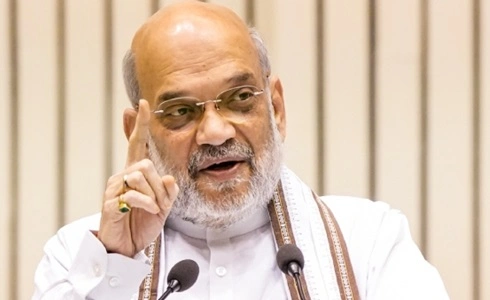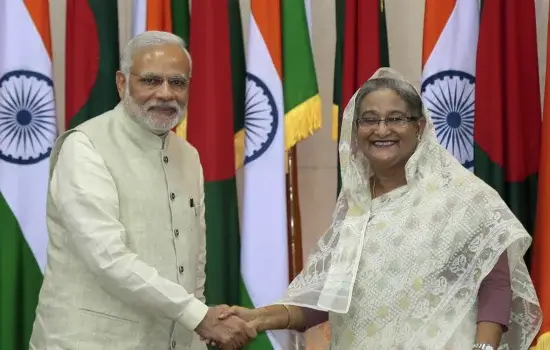Union Home Minister Criticizes Mamata Banerjee’s Administration in Lok Sabha Debate
In a recent Lok Sabha session, Union Home Minister Amit Shah leveled serious allegations against the West Bengal government, led by Chief Minister Mamata Banerjee, accusing it of obstructing border security measures and facilitating illegal immigration. Shah’s remarks came during the debate on the Immigration and Foreigners Bill, 2025, highlighting concerns over national security and the integrity of India’s borders.
Allegations of Obstruction in Border Fencing

Amit Shah asserted that the West Bengal government has been uncooperative in providing land necessary for completing border fencing projects. He stated, “The fencing work of 450 km is pending because the West Bengal government is not giving land for it… Whenever the process of fencing is done, the ruling party workers indulge in hooliganism and religious sloganeering.” This incomplete fencing, according to Shah, compromises the security of the nation by allowing unchecked infiltration.
Accusations of Facilitating Illegal Immigrants
The Home Minister further accused the Trinamool Congress (TMC) administration of aiding illegal immigrants by providing them with official identification documents. He claimed, “Whether Bangladeshi infiltrators or Rohingyas, earlier they used to enter India through Assam when Congress was in power. Now they enter India through West Bengal where TMC is in power.” Shah alleged that these infiltrators are being issued Aadhaar cards and voter IDs, particularly pointing to the 24 Parganas district as a hotspot for such activities.
Political Implications and Future Projections
In a bold political prediction, Shah stated, “In 2026, the BJP government will be formed in West Bengal and we will put an end to this.” This remark underscores the Bharatiya Janata Party’s (BJP) intent to challenge the TMC’s stronghold in the state by leveraging issues of national security and illegal immigration as key electoral strategies.
Context of the Immigration and Foreigners Bill, 2025
The debate occurred in the context of the Immigration and Foreigners Bill, 2025, which aims to tighten immigration laws to better monitor foreign arrivals and enhance national security. Shah emphasized the necessity of such legislation, noting that India’s growing economic stature has made it a hub for manufacturing and an attractive destination for people worldwide. He cautioned, however, that this attractiveness also brings challenges, including increased infiltration for ulterior motives.
Historical Allegations Against the West Bengal Government
This is not the first instance where the West Bengal government has faced allegations related to illegal immigration. In previous years, similar accusations have been made, suggesting a pattern of concerns regarding border security and the state’s administrative actions. These recurring allegations highlight ongoing tensions between the central government and the West Bengal administration over issues of national security and immigration policy.
Reactions from the West Bengal Government
At the time of writing, the West Bengal government has not issued an official response to Amit Shah’s latest allegations. In past instances, Chief Minister Mamata Banerjee has vehemently denied such claims, accusing the central government of politicizing the issue for electoral gains. It remains to be seen how the TMC will address these renewed accusations in the current political climate.
National Debate on Citizenship and Immigration
The issue of illegal immigration and citizenship has been a contentious topic in Indian politics, particularly with the enactment of the Citizenship Amendment Act (CAA) in 2019. The CAA aims to provide citizenship to persecuted non-Muslim minorities from neighboring countries, which has sparked debates and protests across the nation. Shah’s recent comments add another layer to this ongoing discourse, especially concerning the implementation and impact of such policies in border states like West Bengal.
Conclusion
Amit Shah’s allegations against the West Bengal government have reignited discussions on border security, illegal immigration, and the role of state administrations in national security matters. As the 2026 state elections approach, these issues are likely to become focal points in political campaigns, influencing voter sentiment and the future political landscape of West Bengal. The central government’s push for stricter immigration laws, juxtaposed with accusations of state-level facilitation of illegal immigrants, sets the stage for a complex and charged political environment in the coming years.

